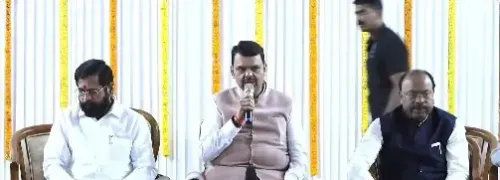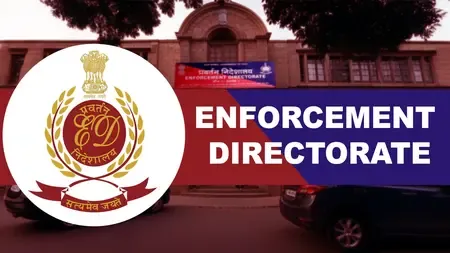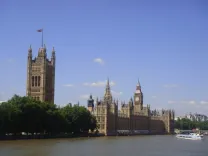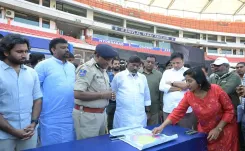Devotees Engage in Prayer and Penance During 'Shab-e-Barat' in Kashmir
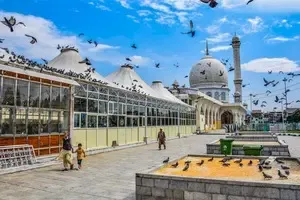
Synopsis
Key Takeaways
- Thousands engaged in prayer during 'Shab-e-Barat'.
- Major gatherings occurred at Hazratbal shrine.
- Contrast between practices of Ahle Hadis and majority Muslims.
- Visiting graves for Fateh prayers is a common ritual.
- Authorities restricted gatherings at Jamia Masjid.
Srinagar, Feb 14 (NationPress) Thousands of Muslim devotees dedicated the sacred night of 'Shab-e-Barat' to prayer and penance in Kashmir, as mosques and shrines echoed with the praises of Allah and reverence for the Prophet.
Exhibiting their enduring commitment to the inclusive and tolerant message of the Prophet, devout Muslims remained engaged in prayer across various locations throughout the night, seeking divine blessings and invoking Allah's mercy for both this life and the afterlife.
Despite the pervasive influence of the rigid Wahabi interpretation of Islam practiced by the Ahle Hadis in Kashmir, a significant number of Kashmiri Muslims flocked to mosques and shrines until dawn on Friday.
Adherents of the Ahle Hadis school do not engage in the customary prayers and penance at mosques and shrines during the sacred occasion of Shab-e-Barat. This faction often criticizes those who embrace the more tolerant and inclusive Islamic practices followed by the majority of Kashmiri Muslims.
Kashmiris also visit graveyards during this holy night to offer 'Fateh' prayers at the graves of their deceased, in stark contrast to the Ahle Hadis belief that no 'Fateh' can provide solace to the dead, as their actions in life determine their ultimate fate.
The largest gatherings were observed at the Hazratbal shrine, located on the banks of Dal Lake in Srinagar city. This shrine is home to the holy relic of the Prophet, which is displayed to devotees after each Nimaz during key days in the Muslim calendar.
However, authorities prohibited congregations at the Jamia Masjid in the old city Nowhetta area of Srinagar.
Sources close to the head priest, Mirwiaz Umar Farooq, indicated that he had been placed under house arrest in his residence in the uptown Nigeen area of Srinagar city. Typically, a large gathering takes place at Jamia Masjid each year for Shab-e-Barat.


